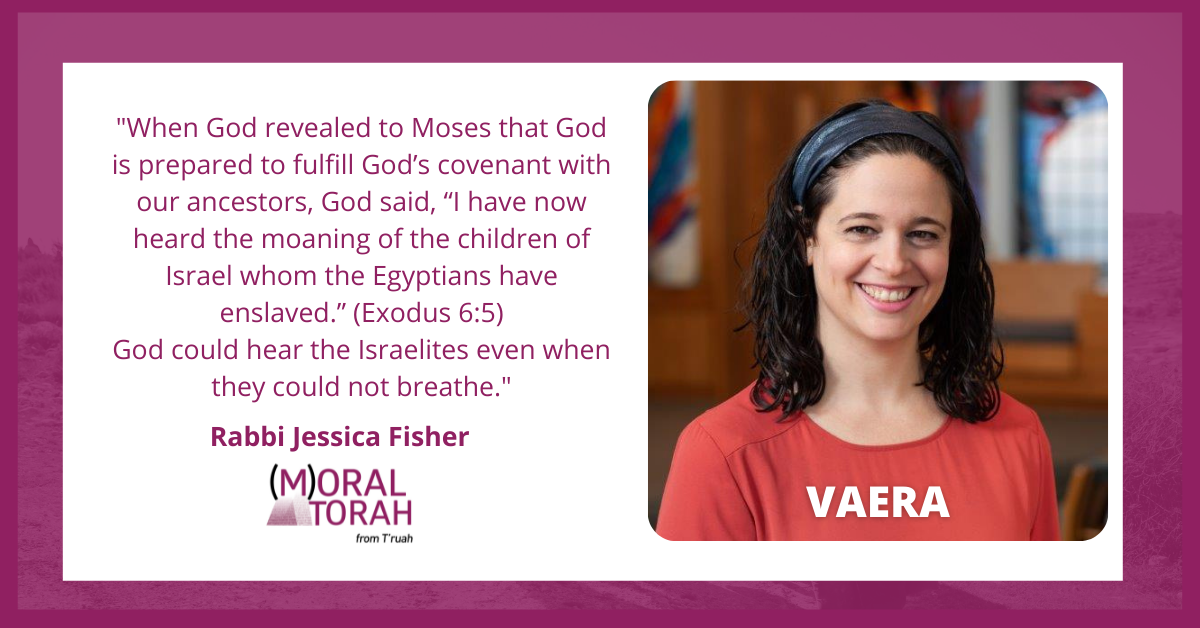A D’var Torah for Parshat VaEra by Rabbi Jessica Fisher
I moved to Manhattan when I was 18. As a suburban kid from Ohio, it was hard to imagine I could ever adapt to the new culture I had landed in — my clothes weren’t right, I was way too polite, and I did not have the grit to push my way onto a crowded subway car. But I was really good at one thing: walking down the street like the world depended on my arrival at my destination. Finally, I had found a place where my speed was normal!
In a recent article, Dr. Quill R Kukla describes the way urban environments produce disability, using “pace bias” as an example: “It had never occurred to me that my own pride in my fast pace, and my frustration with those who moved or talked slowly (whether because of biological or cultural differences), was a form of ableist bigotry.” Kukla goes on to explain the ways that pace bias is physically built into our urban environments, not just our attitudes.
Sign up to receive (M)oral Torah in your inbox each week.
Like Kukla, I, too, take pride in my speed — in the way I walk, talk, and accomplish tasks — and I had never considered the way my own valuation of that pace devalued others. Our society and the physical spaces we inhabit also champion pace bias, encouraging us to do more and get there faster.
Our tradition describes our enslaved ancestors as being brickmakers and brick layers, the labor used to construct cities for the glory of Pharaoh. This oppressed people — like so many oppressed peoples after them — was tasked with erecting the very architecture of their oppression.
In VaEra, Moshe approaches the Israelites with a message of hope and redemption. To his surprise, they did not listen “mikotzer ruach — because their spirits were low — from harsh labor.” (Exodus 6:9)
Literally, “kotzer ruach” means a shortness of spirit. It conveys an intolerable depth of anguish, a complete lack of energy or strength. Rashi teaches that when one is suffering this way, it is hard to breathe. The air comes in short gasps and a person can’t take the full breaths needed to inflate the lungs and bring rejuvenation.
Of course, if they couldn’t breathe — couldn’t even pick their heads up — how could they be expected to listen? How could there be room in their lungs and hearts for hope when they were suffering under harsh labor?
When God revealed to Moses that God is prepared to fulfill God’s covenant with our ancestors, God said, “I have now heard the moaning of the children of Israel whom the Egyptians have enslaved.” (Exodus 6:5)
Find more commentaries on Vaera.
God could hear the Israelites even when they could not breathe.
As I read Kukla’s analysis of the ways physical spaces are designed for the physically strong, I heard echoes of those cries. The more the Egyptians demanded of their slaves — the harsher the labor — the more they gasped for breaths.  Kukla notes, “City spaces don’t just happen to be fast paced,” they become that way when a society values the speed and the output that results.
Kukla notes, “City spaces don’t just happen to be fast paced,” they become that way when a society values the speed and the output that results.
When we learn that our Israelite ancestors were afflicted by kotzer ruach, we must consider the ways our physical spaces, our programs, and our values are designed for certain populations at the exclusion or oppression of others. We must charge ourselves to hear the moans of the breathless, and commit to creating space for everyone to catch their breath.
Jessica Fisher serves as a rabbi at Beth El Synagogue Center in New Rochelle. Ordained by the Jewish Theological Seminary, she was a T’ruah Israel Fellow in 2016-2017.

